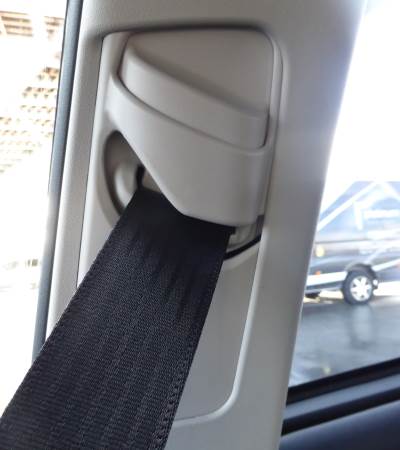Driving while pregnant
There are no laws in the UK to prevent you from driving or being a passenger in a car while pregnant but there are some things you should consider to ensure your trip is safe and comfortable.
Should you drive while pregnant?
Driving law in the UK focusses on whether you can drive safely in a certain physical condition, not the specific condition. It’s why we have limits on alcohol consumption and why it’s illegal to drive after taking certain prescription medications and all illegal drugs. Pregnancy doesn’t have a specific effect on every person.
How should you wear your seatbelt while pregnant?
There are no seatbelt exemptions even though a seatbelt can be a little uncomfortable at times; ensure the lap belt goes under your bump, low across your hips, and the diagonal is placed over your collarbone, between your breasts and around the bump. Never put the belt across your belly. If the seatbelt isn’t comfortable, try adjusting its height – most cars have a seatbelt height adjustment like this.

If you find your steering wheel is interfering with your belly, try pushing the steering wheel back further and change the tilt if it’s adjustable in your car. If not, try adjusting the seat height and how far the seat is tilted back.
Are you feeling OK to drive?
As long as you can fit your seatbelt, are able to operate all the controls and are feeling well enough to drive you are allowed to drive. If you are suffering the type of severe morning sickness that distracts you to the point of not being in control of the car or you have fatigue (both of which can plague mothers in the first trimester) then you should avoid driving until you feel well again.
Are there any areas of discomfort when driving while pregnant?
Some mothers report that they find it difficult to turn to look in their blind spots after a certain point (usually in the last few weeks of pregnancy); purchase a convex mirror to help you see into your blind spots. Other women report discomfort sitting for long periods due to pressure by the seat belt that exacerbates heartburn, and swelling in the legs and ankles. The baby sometimes will adopt an uncomfortable position that can only be changed by you moving. Some symptoms can be alleviated by frequent toilet stops where you can also stretch.
Why do some expectant mothers stop driving?
The more you are on the road, the more risk you have of being in an accident. While you are strapped in with a seatbelt, your baby isn’t. If you have a crash, the main risk is the placenta becoming detached which then reduces the oxygen supply to your baby. There’s a small risk of the baby’s head impacting your pelvis and causing you an injury.
Be careful not to isolate yourself, though; it’s important you have your support networks while pregnant and they may involve travelling.
Car accidents while pregnant
If you have a car accident while pregnant it’s important you see a doctor as soon as possible, even if you feel OK. If you’re in a severe accident, tell emergency services that you are pregnant so that they can take any necessary precautions as soon as possible.
- Understanding the National Standards for Riding Mopeds and Motorcycles
- Livestock Transport Rules UK: A Complete Guide to Animal Transportation Requirements
- The Role of Safety Advisers in Dangerous Goods Transport
- Sustainable Driving: Reducing Your Environmental Impact on the Road
- Developing Effective Lesson Plans for Driver Training
- UK Agricultural Vehicle Registration and Tax Relief
- Challenges of Transporting Radioactive Materials (Class 7)
- Exemptions and support for Clean Air Zone charges
- Navigating Legal Requirements: The UK Motorcycle Licensing Rules
- Safe Transportation of Agricultural Chemicals and Hazardous Materials
- Innovations in Vehicle Construction for ADR Compliance
- Motorcycle Recovery Operations: How to Recovery a Broken Down Motorbike
- Alternative Fuels in Agricultural Vehicles
- Carriage of Dangerous Solids in Bulk Containers
- Understanding Limited Quantity Exemptions in ADR